The complex disease plaguing Nigeria is not beyond God’s redemption. Thirty one years ago, God spoke on the way forward for Nigeria. The Surgery Nigeria Needs, suggests a tribute to Professor William Akintunde Isaacs-Sodeye on his 87th birthday that brings to our national mindset the argument that ‘leadership in Africa is a bad mixture of African and foreign cultures which tend to suggest that leadership in the continent is devoid of indigenous cultural imperatives.’ For this reason and according to Joaquim Alberto Chissano, a former Chairman of the Forum of Former African Heads of State and Government, and winner of the 2007 Mo Ibrahim African Leadership Award ‘a culture of dependency has been entrenched in the continent forcing Africa to consume what it does not produce and produce what it does not consume.’ In this culture of dependency, Nigeria, the giant of Africa takes the lead in leadership, political and spiritual devoid of indigenous cultural imperative and in need of healing. I agree with Chissano ‘that in Africa we have leaders but we do not always have leadership … if one considers a leader as an individual and leadership as a system.’ The reflection is that ‘there is no leader without a system, even informal systems. Put differently, there is no leader without leadership. It may be bad or poor leadership but it is leadership anyway.’ What we need in Africa and Nigeria especially is leadership for national development which presupposes a thoughtful leader with a leadership style that focuses on national development.
Prof Isaacs-Sodeye was the Chairman of the 1991 Nigerian Reinhard Bonnke Great Gospel Crusade Planning Committee in the cities of Kaduna and Ilorin. At the end of every crusade night programme, there were thousands of crutches and turbans left on the floor of the open grounds of new converts. The tragic effect of the Crusade was that, on October 14, 1991, Nigeria ‘went through harrowing times and 2,000 lives were estimated to have been lost as a result of the riots that ensued. It was this experience and other encounters of Prof Isaacs-Sodeye that guided him to write a book, a prophetic word analysing the Nigerian situation titled “The Surgery Nigerian Needs.” The book remains a prophetic manual and recommended solutions for the root of Nigerian problem.
Prof Isaacs-Sodeye was born on 3rd September, 1934 in Zaria, Northern Nigeria to a Nigeria Railway pay clerk from Abeokuta, Ogun State, and a literate housewife from Ondo in Ondo State. Prof Isaacs-Sodeye ‘was schooled up to London Matriculation with a Lagos Baptist Mission School and became a graduate of Physiology and Medicine from Magdalen College, Oxford and later studied at Magdalene College, Cambridge. Prof Isaacs-Sodeye met the Lord Jesus and received Him in 1948, but was only grounded in Christ in July 1973 and baptised with the Holy Spirit in February 1974. In October 1975, Prof Isaacs-Sodeye got a Chair of Haematology first at the University of Ibadan and then at Ile-Ife, Nigeria. He was ordained in July 1976 as an Anglican Clergyman after he had been practising medicine for 13 years. He was a short-term missionary on CMS invitation in England in 1981 and has seen most of the miracles of New Testament times performed by Jesus today.’
Prof Isaacs-Sodeye had a spell of full-time pastoring at St George’s Anglican Church, Kano. In 1987, at the commencement of his ministry, “The Healing Love of Christ Ministry,” he reigned from his jobs in obedience to God’s command. With his wife, Sister Bridget, they began living by faith. In September 1988 Prof Isaacs-Sodeye was appointed the General Secretary of the Christian Association of Nigeria, (CAN, Kano State Branch). In January, 1989, Prof Isaacs-Sodeye and his wife, Bridget travelled to Singapore for a 5 week Course in Leadership and Evangelism. Prof Isaacs-Sodeye ‘became the Assistant National Secretary of the Christian Association of Nigeria, and for the next three years he was in danger as a Christian leader under a repressive Muslim military government. There were at least three times in that period when he nearly lost his life.’ Prof Isaacs-Sodeye worked ecumenically closely with Ambassador Jolly Tanko Yusuf, a former General Secretary, Christian Association of Nigeria (CAN) and His Eminence Dr Samuel Chukwuemeka Kanu Uche, Prelate, Methodist Church Nigeria. While serving in Northern Nigeria, Prof Isaacs-Sodeye recommended into the ministry the current Primate, Anglican Church of Nigeria, the Most Reverend Henry C Ndukuba.
Prof Isaac-Sodeye ‘declared his intention to stand as a contender for the National Republican Party’s nomination for the Presidential elections in Nigeria in 1992. He registered as an aspirant, but withdrew when it was announced that the fee for registering for the election was half a million naira. He came to England when it was clear that the military regime in Nigeria objected to his book on Nigeria, on the 16th of December, 1992. On May 1, 1993 he was given a position with the Diocese of Ely as a Deanery Missioner in the North Stowe Deanery. He became a frequent visitor of eight parishes, developing a special rapport with St Andrew’s Church, Oakington in Cambridge. He began his ministry in this area by supplying ministry in interregnum situations. He also conducted healing services as well as preaching and ministering in other churches.’
In his Foreword to Prof Isaacs-Sodeye’s book, ‘The Surgery Nigerian Needs,’ Ambassador Jolly Tanko Yusuf in 1990 explained that the book ‘is full of medical jargon, you will agree with me that The Surgery Nigeria needs is not referring to the biological surgery but Biblical.’ According to Ambassador Yusuf, as indicated in its philosophies and spiritual surgery … complex strains and problems which Nigerians especially Christian communities encounter in contemporary Nigeria find their answer, not in tranquilizers or stimulants, but in a correct understanding and application of scriptural principles, as enunciated in the Scriptures.’ Nigeria needs surgery to be accurately performed in order to halt permanently the disintegration of the body (nation). According to Ambassador Yusuf, ‘if the system is wrongs we all know, the only mechanism for correction that will help the poor and remove injustice is change of leadership at all levels.’
Just as science begins with empirical observation, Prof Isaacs-Sodeye brings his medical and spiritual knowledge to the Nigerian door-steps to overcome leadership in Nigeria devoid of indigenous cultural imperatives. Nigeria suggests the vision of the ‘Body’ falls apart. In a corporate prayer response to Friday the 13th of July February, 1976 coup against General Murtala Mohammed, Prof Isaacs-Sodeye received ‘a highly significant word of prophecy.’ According to Prof Isaacs-Sodeye, the core of the prophecy ‘was that God was operating on a cancerous growth in the ‘belly’ of Nigeria. He was removing a few fragments which could cause malignant destruction if not stopped.’ The reflection is that, the prophecy was not fulfilled to the letter, the surgery became merely palliate with some types of ‘malignant cancers in the belly.’ They may recur. They may even take the life of the subject if all nasty fragments are not necessarily removed.’ The nasty fragments are increasingly taking the life of Nigerians despite been a sovereign nation for 61 years. Nigeria is continue to be ruled by a military/political oligarchy, ‘a most unrepresentative form of leadership.’ The divine diagnosis given by Prof Isaacs-Sodeye in his book, The Surgery Nigeria Needs, is that a malignant growth needed to be stopped 32 years ago. ’Because if this severe aberration continued, it is hardly surprising that the malignancy has now outgrown it bounds. It now required radical surgery.’
Not forgetting our elites pre-independence colonial-shaped disunity, the military, religious and political indiscipline, where people forget their calling, and become fortune hunters and coupled with the present North-South dichotomy has evolved with time into a full-blown case of ethnic agitations and case of religious apartheid. Prof Isaacs-Sodeye relates the problem to ‘the recognition of ‘self’ and ‘non-self’ components, in prevention of medical malignancies. The personal search for definition of identity by an individual in, North, South, West or East in Nigeria fuses with the problem of determining national goals. Where it becomes difficult to define who one is, it becomes impossible to sort out what one is in relation to others particularly in the world at large. The ‘body’ is then at the mercy of ‘non-self,’ external elements which work in synergism towards disintegration.’ The genesis of Nigerian malignant is not farfetched because it has been a slow-killing disease, hence the need for a urgent and radical surgery to halt the permanent disintegration of the ‘body’ by malignant elements – politically and spiritually. Prof Isaacs-Sodeye in one of his talks at the invitation of the premier Rotary Club, Kano, he examined microcosms in Nigerian society based on the topic, ‘Logistic Mechanisms for the Evolution of a Just and Meritocratic Society in Nigeria.’ We must all recognise that the contribution of each individual in society to the slide in values, contains the kernel of the solution.
Prof Isaacs-Sodeye’s reference to the Fulani-Hausa Islamic hegemony and the Kaduna “Mafia” reminds us of 1918 Lord Lugard merger of a Northern Protectorate with a Southern Colony and christened the amalgam, Nigeria and its effects till date. The genesis of our problem points to leadership devoid of indigenous cultural imperatives. To be approved of by the elite society, ‘one had to “spray” money at parties and effectiveness as a prominent member of the government or society was determined by how much money you disbursed at parties to artistes, dancers, relatives etc.’ Ours was a leadership with flamboyant style of dress making ‘a grand entrance into the National Assembly’ with a ‘voluminous bundle of exotic silk… with many yards trialling behind … one top example in the country with millions afflicted with under- and mal-nutrition.’ In the 60s, many took loans from government, built large mansions and rented out those houses back to government. Government was repaid from the rentals paid to these landlord.’ Money became ‘a god, here in Nigeria’ just because of leadership devoid of indigenous cultural imperatives. The early history of the Nigerian disease was mainly a story of ethnic political rivalries, there was no sense of national consciousness, ‘it was every man for himself.’ Resultantly, for the past 62 years –‘plague, inter-ethnic competition made it difficult for Nigerian to pull forward.’ Nigerian system has run severely down him and ‘the tradoreligionist pretends to have solutions to problems they cannot even understand or analyse. The mallams and spiritist churches see untrue “visions” to deceive the simple-minded. The Christian priests have gone commercial. Indeed, the smugglers, pen-robbers, and other villains of society have been encouraged by the accolade they get in “church” when they donate stolen money … All ministers of religion have failed the society. Not only have they not given good advice, but they have aided and abetted wrong doing. Telling the truth is a rare practice in all corners of Nigerian society.’
To develop leadership with indigenous cultural imperatives, there is need for national reconstruction work with open, heart-searching self-analysis. What makes leadership with indigenous cultural imperative is about delivering on promises made and accountability in our body politic. The challenge of leadership is to anticipate demands and aspirations of the people and design appropriate strategies to address them. Therefore a leader with indigenous cultural imperatives must be a visionary with a warning that ‘the vision of the leader cannot be imposed on the people especially when they were not prepared to understand what it means for their lives.’ Prof Isaacs-Sodeye’s concept of ‘Warrant Around Merito-Nigeria calls for sacrifice from all Nigerians in other to overcome the basic problem, in layman’s language of “monkey de work, baboon de chop” culture. People’s participation is the most important part in a country’ democracy and economy. The sense of belonging to the exercise of power is very much reassuring to the citizens. Prof Isaacs-Sodeye’s book, The Surgery Nigeria Needs warns us that corruption, greed, and poverty are the major threats to our security, which, in turn, is the precondition for peace that provides the environment for sustainable national development. We need accountability, performance, and meritocracy in order to eradicate poverty as a prerequisite for social and economic transformation and development.
Happy renewing 87th birthday to Prof William Akintunde Isaacs-Sodeye.

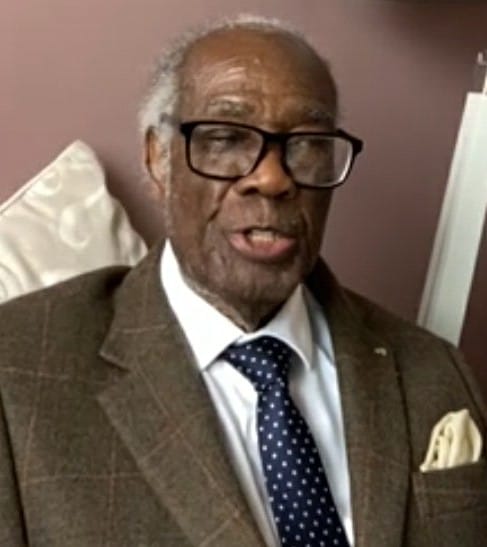
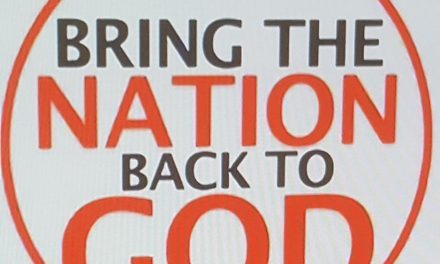
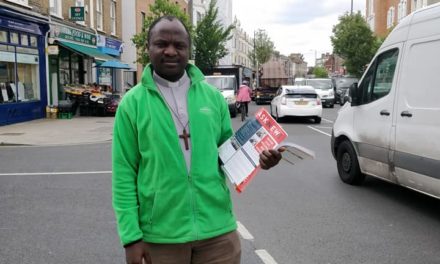
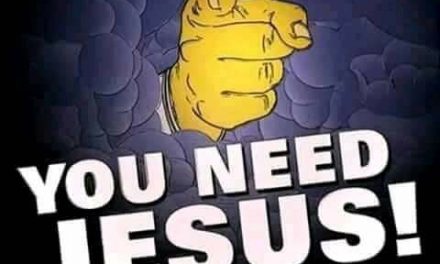
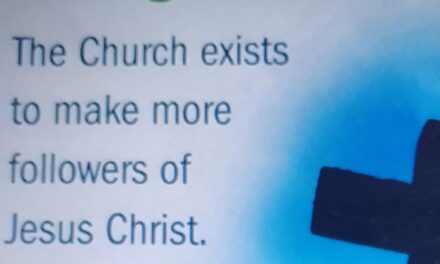




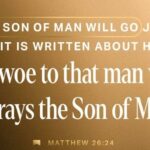
Recent Comments